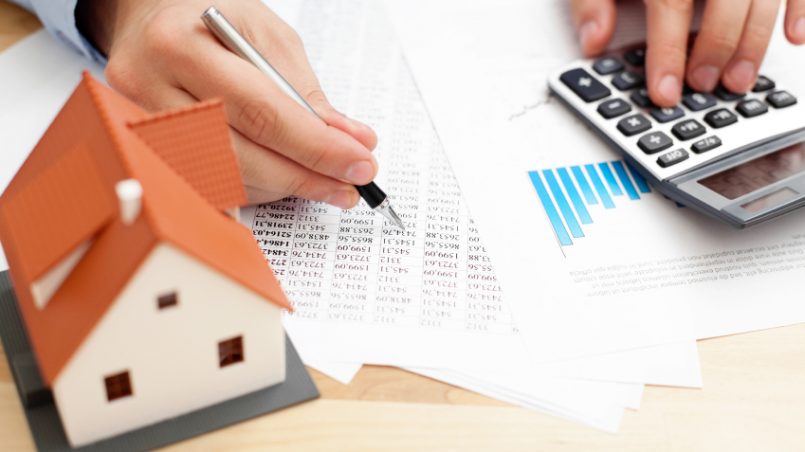1. How to get started in real estate investing
If you’re thinking about getting started in real estate investing, there are a few things you should know. Real estate investing can be a great way to build your wealth, but it’s not without its risks. Here are a few tips to help you get started on the right foot.
1. Do your research.
Before you invest a dime in real estate, it’s important to do your homework. There are a lot of different ways to make money in real estate, but not all of them are right for everyone. Figure out what your goals are and what you’re comfortable with before you start investing.
2. Find a mentor.
One of the best ways to learn about real estate investing is to find someone who’s already successful at it. Ask around and see if you know anyone who’s willing to mentor you. Not only will they be able to teach you the ropes, but they’ll also be a valuable resource when it comes to finding deals.
3. Get started with a small investment.
You don’t need a lot of money to get started in real estate investing. In fact, you can start with just a few thousand dollars. Use this money to buy a small investment property, such as a duplex or triplex. This will give you a chance to learn the ropes without risking a lot of money.
4. Be prepared for the long haul.
Real estate investing is not a get-rich-quick scheme. It takes time and patience to see a return on your investment. Be prepared to hold onto your investment for the long term.
5. Have a solid exit strategy.
Before you buy an investment property, you need to have a solid exit strategy. This is how you’re going to make money on your investment. Do your research and figure out the best way to sell your property when the time comes.
These are just a few tips to get you started in real estate investing. If you do your homework and find a good mentor, you can be successful in this business.
2. Why you should never buy a property sight unseen
When it comes to buying property, there are a lot of things to consider. Location, price, square footage, and amenities are just a few of the factors that come into play. But one of the most important things to keep in mind is that you should never buy a property sight unseen.
There are a lot of risks involved in buying property sight unseen. For one, you can’t be sure of what you’re getting. The photos you see online might not be an accurate representation of the property in real life. The property might also be in a different condition than what was advertised.
Another risk is that you might not be able to get a good idea of the neighborhood or surrounding area. This is especially important if you’re planning on moving to the property. You need to make sure you’re comfortable with the area before making such a big purchase.
Finally, there’s always the possibility that the deal could fall through. If you’re not able to see the property in person, it’s harder to negotiate a good price or spot any potential problems. This could end up costing you a lot of money in the long run.
So, if you’re thinking about buying property sight unseen, think again. It’s not worth the risk.
3. How to determine if buying a property is the right decision for you
Making the decision to buy a property is a big one. There are a lot of factors to consider before you make this decision. In this blog, we will go over a few key points to help you determine if buying a property is the right decision for you.
1. Do your research
The first step is to do your research. You need to be aware of the current market conditions and have a realistic idea of what you can afford. It is also important to have a clear understanding of the risks involved in buying a property.
2. Get your finances in order
Before you even start looking at properties, you need to get your finances in order. This means getting pre-approved for a mortgage and understanding what your monthly payments will be. You also need to have a down payment saved up.
3. Consider your lifestyle
Buying a property is a big commitment. You need to make sure that it is the right fit for your lifestyle. Consider things like whether you need a big backyard or if you want to be close to amenities.
4. Be prepared for repairs and maintenance
Owning a property comes with a lot of responsibility. You will be responsible for any repairs and maintenance that needs to be done. This can be costly, so you need to be prepared financially.
5. Seek professional advice
If you are unsure about whether buying a property is the right decision for you, seek professional advice. A financial advisor can help you understand the risks and benefits of buying a property.
Making the decision to buy a property is a big one. There are a lot of factors to consider before you make this decision. We hope that this blog has helped you understand a few key points to help you determine if buying a property is the right decision for you.
4. Five benefits of prebuying a property before it hits the market
If you’re thinking of buying a property, you may be wondering if it’s better to wait for it to hit the market or to try to pre-buy it. There are advantages and disadvantages to both approaches, but there are also some clear benefits to pre-buying a property. Here are just four of them:
1. You’ll have a better chance of getting the property you want.
If you wait for a property to hit the market, you’ll be competing with other interested buyers. But if you pre-buy, you may be able to get the property before it’s even listed. This means you won’t have to worry about other people outbidding you or otherwise getting in your way.
2. You may be able to get a better price.
Because you’ll be buying before the property is officially on the market, you may be able to negotiate a better price with the seller. This is especially true if the seller is motivated to sell quickly.
3. You’ll have more time to do your due diligence.
When you pre-buy a property, you’ll have more time to inspect it and make sure it’s really the right one for you. You won’t have to worry about losing out on the property if you take your time to do your research.
4. You can close on the property sooner.
If you’re pre-buying a property, you can often close on it much sooner than you could if you were waiting for it to hit the market. This means you can start enjoying your new home or investment property that much sooner.
Of course, there are also some disadvantages to pre-buying a property. For one thing, you may not have as much negotiating power with the seller if they’re not in a hurry to sell. And you’ll also need to have your financing in place before you make an offer.
But if you’re prepared to take on these challenges, pre-buying a property can be a great way to get a jump on the competition and snag a great deal.
5. Tips for choosing your real estate agent and learning about how they work
Picking the perfect real estate agent is essential to having a smooth and successful home buying experience. The agent you choose will be your partner through one of the biggest financial transactions of your life, so it’s important to take your time and choose wisely. Here are five tips to help you choose the right real estate agent.
1. Research different types of agents.
There are different types of real estate agents, each with their own strengths and weaknesses. For example, some agents work exclusively with buyers, while others represent sellers. Some agents are part of a team, while others work independently. There is no one-size-fits-all when it comes to real estate agents, so it’s important to find one that will fit your needs.
2. Ask for recommendations.
If you know someone who has recently bought or sold a home, ask them for their agent’s contact information. Personal recommendations are often the best way to find a great agent.
3. Interview multiple agents.
Once you have a few agents in mind, set up interviews with each one. This is your chance to get to know the agent and see if they’re a good fit for you. Ask them about their experience, their process, and their thoughts on the current real estate market.
4. Check their credentials.
All real estate agents must be licensed by the state in which they practice. You can check an agent’s credentials by contacting your state’s licensing board. In addition, many agents are members of professional organizations, such as the National Association of Realtors. These memberships can give you an idea of an agent’s commitment to their profession.
5. Trust your gut.
After you’ve interviewed multiple agents and checked their credentials, you should have a good idea of who you’d like to work with. Ultimately, the decision comes down to who you feel the most comfortable with. Trust your instincts and choose the agent you feel you can work with most easily.








